#queer series
Text


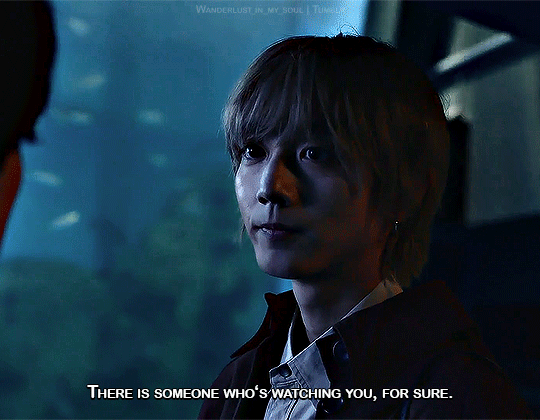
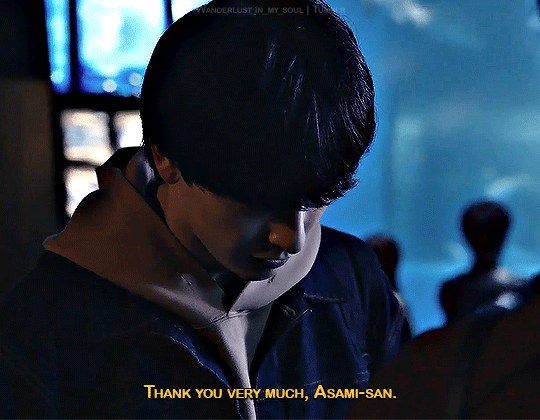
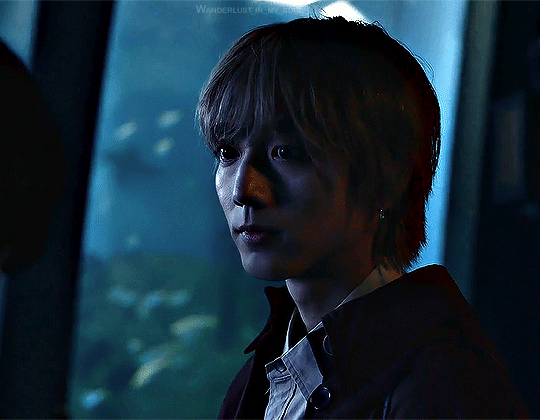
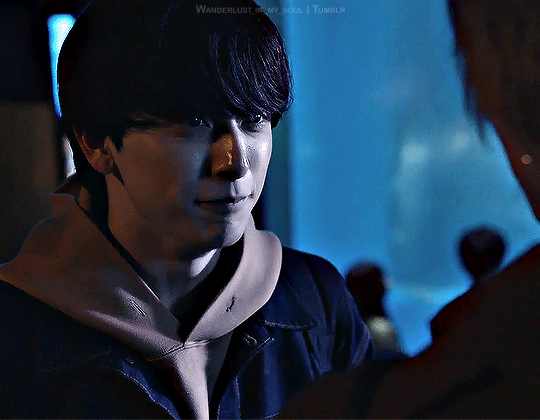
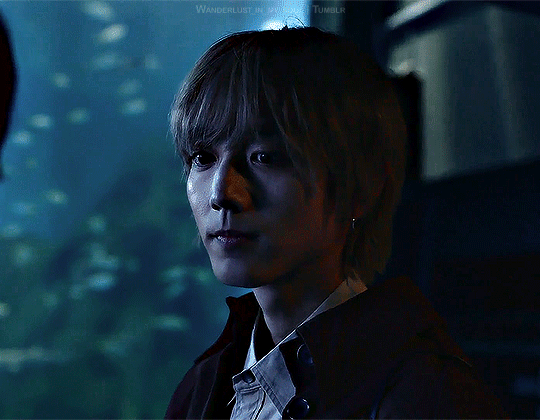
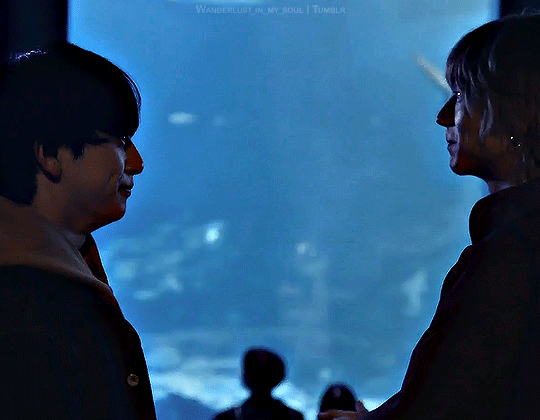
Call each other by our first names.
#25 ji akasaka de#at 25:00 in akasaka#shirasaki x hayama#yuki x asami#japanese bl#japanese drama#japanese series#jdrama#jbl#bl drama#bl series#myedit#lgbtq+#queer drama#queer series#asianlgbtqdrama
129 notes
·
View notes
Text
Anyone else notice that the morning after Phaya escapes the hospital and shows up at Tharns place, he is wearing suspiciously well fitting pants?? Arguably pants that are a little looser fit than he would normally wear? Pants that no way in hell would fit our smol Tharn?
So I ask you, I posit to you… for science…
After the too small pants incident did Tharn make a point of having a larger pair of pants in his wardrobe in case Phaya stayed over again??
Did he buy the pants before they actually got together??
These are the hard hitting questions I’m here to ask…
#the sign the series#the sign#the sign bl#thai bl#thai drama#thai series#idol factory#billybabe#billy patchanon#babe tanatat#phayatharn#the sign phaya#asianlgbtqdramas#queer series#bl series#if you notice his tshirt is a little tight#like not too much so it still fits well but his pants…#I’m just sayin 👀#bl drama#asian drama
61 notes
·
View notes
Text
I think Ray is the guy of this shittie group who isn't trying to manipulate and force decisions, upon anyone. What ever he does, and says, it's the whole truth for him at that moment, he doesn't were masks. Unlike Mew, he isn't acting on his four-step plan, he lives in the present, so he is genuine. He is not gaslighting like Boston, he explains things from his perspective without trying to manipulate anyone's emotion.
When he kissed New and, Mew woke up, he knew he fucked up, crossed boundaries, so he asked forgiveness, he told his truth making clear that it didn't come from evilness. And apologized for doing it without consent.
When he goes back to Sand, he is being genuine once again, he knows (with Sand's help) that he hurt him. But that's the thing, he didn't do it on purpose, he doesn't hurt people knowingly, I think if he ever does that he'll hate himself more than anyone. That night, his priority was to help the friend he promised to be there for, because he saved his life once. Ray and Sand are the only characters for me who don't have an agenda, who are acting on their feeling without any intention to hurt or manipulate people, at least for now.
#only friends#only friends the series#ofts#ill protect sandray#sand ray#ray x sand#queer series#thai series#thailand drama#bl drama#sand x ray#only friends episode 4
87 notes
·
View notes
Text
Shadow the Series and Hamlet
Okay so after finishing the first half of Shadow there’s so much to unpack. So instead of doing the research I should be doing for my dissertation, let’s dig into some connections between literature and BL once again!
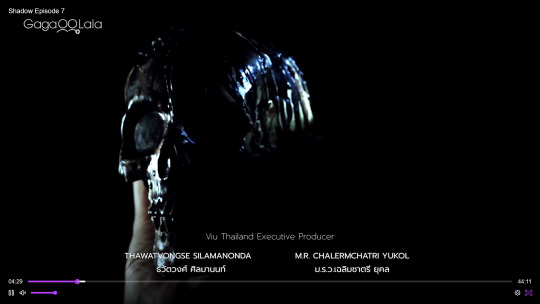
This won’t be a fully formed meta, and I’ll probably have to make a whole other post once the whole series is out. But I wanted to start thinking about how the show is dialoguing with and speaking to similar themes as Hamlet within a queer framework.
I thought I’d work my way through some different interpretations of Hamlet and connect back to Shadow. To be clear, I’m working with scholarship on Hamlet rather than any personal interpretation of Hamlet itself (which I unfortunately haven’t read or watched in many a years).
A quick summary
Hamlet and Shadow via Freud's Oedipal Complex
Hamlet and Shadow via Lee Edelman's work on queerness, the death drive, and queer time
Hamlet and Shadow via self-recognition and resistant readings
A few other directions
Hamlet and the Oedipal Complex
Back in 1897, Freud wrote about Hamlet in a letter to a friend noting that “falling in love with the mother and jealousy of the father…[was] a universal event of early childhood.” So Hamlet was one of the texts that Freud was thinking about when he came up with the Oedipal complex as a concept.
You may be asking, as I often do, who gives a fuck what Freud thought? Well over time, Freudian interpretations of the play highly influenced how it was performed and the ways that themes about subjectivity and sexuality were portrayed.
The 1948 and 1990 film adaptations in particular put stress on a sexually charged dynamic between Hamlet and his mother Gertrude. The later film has Hamlet lying on top of and wrestling with his mother before they kiss. More recent adaptations tend to move away from this, but, overall, it’s been extremely influential in terms of how the play has been interpreted and adapted.
So how does this come up in Shadow?
Dan’s role as Hamlet is closely framed around his relationship with his father who he beats up in the dream world right before his death. We’re introduced to Dan’s dad during his audition for Hamlet. Perhaps in the most obvious parallel, Dan recites Hamlet’s lines as he goes to find his father’s ghost. And of course, this is when Dan’s dad appears as a ghost as well.
Yet, Dan’s narrative with his father seems to buck the expected relationship between father and son. Throughout the play, Hamlet struggles between a desire to fulfill his filial duty and avenge his father and the increasing violence and tragedy this brings. But Dan? In the face of abuse, he chooses to defiantly reject his father and filial piety, accepting and even wishing for his death. In many ways, Dan’s dad is more analogous to Claudius, the usurper and man trying to kill Hamlet. Through his abuse he loses the right to be Dan’s father.
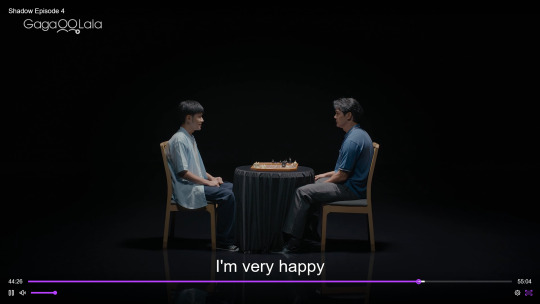

A shallow oedipal reading of Hamlet, frames Claudius as the father Hamlet is trying to kill, but ignores that this dynamic is born from Claudius’ cruelty. By acknowledging abuse, power, and violence Shadow perhaps takes an interesting step away from a pure Freudian reading. Because ultimately Dan doesn’t want to be his father! In fact, as he speaks with him and beats him up, we can see the way Dan is shaken, not by the act of harming or killing his father, but by the idea of becoming him. His father makes clear that “becoming him” is aligned with ideas about what it means to be a man, to be “the father” within a straight patriarchal society. And in a beautiful moment of clarity and defiance as they discuss what love looks like, Dan clarifies that his mom left his father not him.

Okay so he "kills" his dad, what about his mom?
To be honest, when I was wrapping up my watch of the episodes, my head went towards the oedipal theory as a crack theory. What if the ghost is his mom, that’d be pretty effed up lol...But now that I’ve seen that the connection isn’t just one I made, it doesn’t seem as far fetched. The scenes between Hamlet and Gertrude in the 1990s film certainly could be an influence on the shadow getting sexual if they went that route. But to be honest I don’t really think they’ll go this way. Or at least I hope not. They’re already doing more nuanced things with the oedipal dynamic. Plus I think there’s more going on if we turn to queerer interpretations anyway.
The Death Drive, Queering Freud, and Queer Time
In Freud’s work, he talked about two opposing forces. The first was the death drive (later termed Thanatos by later psychoanalysts). This was a drive toward destruction that stood opposite to eros or life-producing drives such as sex, survival, and reproduction.
Now, in 2004, queer theorist Lee Edelman would come in and queer the heck out of these concepts. I’ll be over simplifying Edelman’s points a lot here, but hopefully the core will remain.

Edelman would point out that the life-drive was often weaponized rhetorically, politically, and socially as a way to reproduce cultural norms. Edelman often writes about "the Child"--that is the mythical idea of a child that we should be building society and the future for. Think of how often the “think of the children” rhetoric gets used in anti-queer politics, for example. In fact, Edelman points to oedipal readings of Hamlet as one way that dominant straight society has attempted to manage a narrative where reproduction and futurity are foreclosed. Oedipal readings of Hamlet, then, could be seen as an attempt to suppress the death drive, to put it out of sight where it can’t cause disruption or anxiety.
Of course, Edelman also notes that the death drive is inherently tied to and projected onto queerness and queer people–onto “those abjected as non-reproductive, anti-social, opposed to viability, and so as threats to the Child who assures and embodies collective survival”. And so, Edelman argues that queer people should embrace the death drive and queer time–that is non-futurity and non-linear, non-productive time.
So how might these ideas be showing up in Shadow so far?
I might think of even more later, but here’s a short list:
1. All three of our main characters are abjected. Nai is gay, Trin is gay and mentally ill, and Dan is potentially both. I think we could argue that the connection all three of them have to death also quite literally marks them as abjected. And perhaps we could consider how the supernatural elements thematically and symbolically connect to their alterity and the way this is in conflict with social norms. In fact, I’d argue that, unlike Nai and Trin who are explicitly stated to be queer and/or mentally ill, Dan’s alterity is playing out through this more allegorical channel so far.
2. Literal death as a central focus.
3. Haunting as a limbo between past and present. This liminality feels very queer here.
4. The idea of vengeful ghosts makes the death drive perpetually present in a way that haunts futurity. Interestingly Edelman describes the death drive as a “negativity that haunts the social order” and which is “projected onto those who occupy the position of the queer.” Haunting has very queer thematic possibilities.
5. Think of the ghost story told in the market in episode seven. The homophobia on display clearly ties queerness to death in a way that speaks to straight norms and anxieties.

6. Dan is told by the monk that what is happening has to do with overlapping time frames: past, present, and future
7. Dan often loses his sense of what is real or a dream, but he also has moments where he loses his sense of time and temporality. Notice how when the art statue fell and he saw his classmates dead we jump back to before he even spoke with Nai. It’s not just losing time but jumping back and forth.
8. Sexy times with a shadow monster are certainly non-(re)productive
9. We learn that Trin has been trying to change things, disrupt the social norms, but he is shut down and told the school needs to hold onto tradition. While we often think of tradition as referring to the past, it is very much about continuing and reproducing this into the future. School director: "But think of the future Children who won’t get to experience the epic highs and lows of high school hazing”
10. There seems to be a tension at play between Brother Anurak who is trying to get Dan to just stop believing in the shadow (not sure if that's his actual motive but still) and Dan who is slowly starting to embrace the shadow (literally and figuratively). Perhaps this could be read as embracing the death drive and queerness.
Hamlet, Self-Recognition, and Resistant Reading
Another theme that has often been explored by folks interested in Hamlet is that of self-recognition. The play focuses so very much on Hamlet struggling with his sense of self. And this speaks well to contemporary western ideas of the individual. One scholar, Marjorie Garbor, has noted that “the experience of Hamlet is almost always that of recognition.” While another, John Gouws remarks that Hamlet and Shakespeare’s sonnets both “seem capable of functioning like Rorschach inkblots, by making us reveal (increasingly) more about ourselves the more we try saying something about them.”

It’s interesting to me then that Hamlet and Rorschach tests are both used in Shadow, but they don’t seem to say all that much about Dan. The blot is simply a tool to test if Dan is still seeing the shadow. It isn’t used to psychoanalyze him further. And when Cha-aim asks Dan to compare himself to Hamlet he hilariously just says both their dads are dead. Of course we know that Hamlet’s dad and Dan’s aren’t exactly analogous either. Dan rejects this sort of self-identification. Or perhaps, the play rejects him? At the very least we know that he can’t perform the type of filial love that Hamlet has for his own father.
But perhaps this rejection has queer implications as well. There’s a really lovely article from the perspective of a queer South African director, Thys Heydenrych. He talks about reading and staging Hamlet through a queer and decolonial lens. In his piece he quotes Hanna Kubowitz who discusses queer readers' relationship with texts. She notes that “[b]eing heterosexual has several benefits…One can enter into most cultural narratives…on the basis of simple and satisfying identification.” This of course made me think of the moment when Cha-aim asks Dan to identify with Hamlet.
Whether we read this as an active refusal on Dan’s part or as the play being inhospitable to Dan’s identification, Cha-aim is asking Dan to express and perform identity here. Perhaps this could be read as her asking Dan to narratively self-identify with straight culture and values. It makes sense in the context of her having feelings for him and ties well into the scene where she tries to pick his costume. While Dan isn’t yet identifying as queer, he seems to be dis-identifying from straightness just as he dis-identifies from his father’s version of manhood.
Still, motifs of self-recognition or the struggle to understand oneself seem to abound. The use of mirrors in episodes 6 and 7 speak to this theme well with the blurring of self and other, while also tying into both horror motifs and the Greek mythology being referenced (Orpheus and Eurydice, narcissus perhaps). Is the shadow a part of him?
What I’ll be curious to see is how the show chooses to engage with this theme. Will Hamlet continue to serve as a narrative that is inhospitable to identification or will it be queered. There’s a tradition of scholarship that thinks about resistant reading. This is when a reader engages with a text that wasn’t designed with them in mind, but finds potential despite this. Certainly Shakespeare’s work and Hamlet in particular have been interpreted as queer at times, and Hamlet is definitely open to these readings.
When it comes to Shadow, however, I’m interested in what one scholar, Lois Tyson, has asked about resistant reading: “How might the works of heterosexual writers be reread to reveal an unspoken or unconscious lesbian, gay, or queer presence?” This idea of a hidden queer presence speaks well to the idea of haunting. I’m really interested to see how the use of Hamlet as a narrative might speak to the idea of queerness as hidden presence and whether this continues to play out in the second half.
A few other connections that I want to wait to think on more:
-Madness seems to be a shared theme but I want to see how Shadow handles this as a whole before commenting, but you can check out my post on queer and crip time in The Eighth Sense if you're interested in that element at all
-Power and oppression. Heydenrych’s article mentions a 2010 production that focuses on Denmark’s repressive political system and themes of surveillance, control, and abuse of power. These seem like themes working their way into Shadow but I’d want to be more familiar with the topic in Hamlet
-Suicide. There are versions of Hamlet that heighten this theme further with Gertrude and Ophelia in particular being framed as making attempts.
-Play within a play and the blurring of fiction and reality
-Decolonial and religious elements
Sources:
Heydenrych, Thys. “‘To tell our Storie’: Reflections on a Queer Adaptation of Hamlet in Twenty-first Century South Africa” Shakespeare in Southern Africa vol 30, 2017. pp. 43-55
Edelman, Lee. “Against Survival: Queerness in a Time That’s Out of Joint” Shakespeare Quarterly, 62.2, 2011. pp. 148-169.
Edelman, Lee. No Future: Queer Theory and The Death Drive. Duke University Press, 2004.
Note: Most other sources were mentioned in the Heydenrych piece
#shadow the series#my meta#hamlet#shadow the series meta#meta#my posts#thai bl#queer series#bl series
41 notes
·
View notes
Text


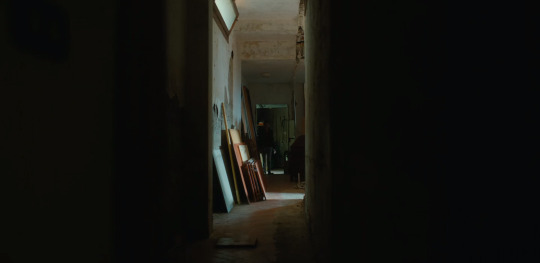
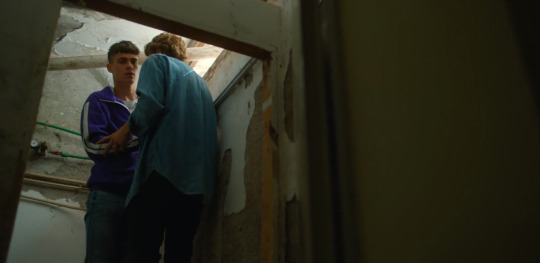
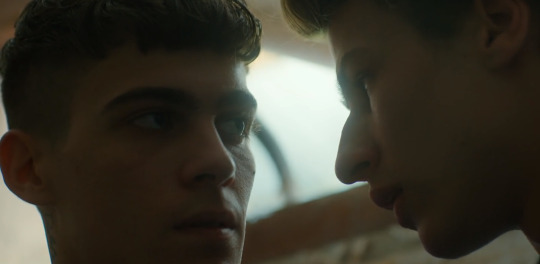
"Verde"
Prisma, S1E04
#prisma#prisma la serie#queer shows#queer series#lorenzo zurzolo#mattia carrano#andrea risorio#1x4#verde#ludovico bessegato#lgbtqia#screenshots#screencaps
54 notes
·
View notes
Text
day by day I'm becoming like him

#kinnporsche#kinnporche the series#boys love#mafia#Mafia boss#fictional men#gay men#mileapo#queer series#thai bl#thai drama#mlm#mafia romance#gay series#i trust no one#trust issues
23 notes
·
View notes
Text
Number 1 Reason to watch Warrior Nun:
get yourself a girlfriend who you trust enough to throw a knife at your head to protect you from men.
Get yourself a girlfriend who you trust enough to phase through a knife you throw at her at last second
GET YOURSELF A BADASS WOMAN NUN WHO YOU CAN FIGHT ALONGSIDE BECAUSE YOU BOTH HAVE MUTUAL TRUST AND LOVE FOR EACH OTHER.
(Also I’m not kidding when I say this is the healthiest WLW relationship I’ve ever watched on media. )
Credits to the tiktoker for the video.
#warrior nun#wlw#avatrice#renew warrrior nun#lesbian#bisexual#gay#lgbtq#lgbtia#lgbt tv shows#queer#queer show#queer series#Netflix#tiktok#warrior nun s2#warrior nun season 2
318 notes
·
View notes
Text
good morning everyone i binged Fellow Travellers and still havent slept yet i cant wait for the last two episodes to come out.
i think this short amazing series has won my heart in so many aspects. the accurate depiction of the lavender scare and the discrimination lgbt people faced. but most importantly the accuracy of the inner turmoil and insecurities and trauma as part of that generation.
i recommend it to anyone really. historical queer media tugs at my heart so much
22 notes
·
View notes
Text
I went into The Warp Effect expecting a total comedy with some queerness on the side and have come to adore one of the most queer, chaotic, loving, deep and honest shows I've ever seen that touches on women's health, queerness, non-binary identity, kinky identity in relationships, adult friendships, peer pressure, exes, the value placed on virginity, the damage religion can do, queer identity overall, falling in love, communication struggles and what people need to live happy lives, love and communication and openness and friends and family and support.
#the warp effect#thai ql#gmmtv#thai drama#thai series#queer#queer tv#thaiql#ql drama#ql series#queer drama#queer series#they just do it all#and i love them for it#lgbtq#lgbtq characters#this show is pure chaos but also pure glory#it's honestly amazing
136 notes
·
View notes
Text
You’re telling me it’s only episode 6 and we are h e r e …
okay okay
Will the series make a complete 360 and be more about growing and changing and being better for ourselves or will we follow the path of grieving this relationship and friendships? Maybe both or something completely different?
All I know is I’m terrified of the future!
Boston learning who recorded him (and yes, Nick is wrong in many of his actions/most of his actions/ all of his actions?… but dare I say how much I don’t want anything bad happening to him) And oh, how much will he be shattered from this obsession he has on Boston. And with him my heart as well in pieces of dust.
I have to say how much of a good friend is Ray. This deserves a complete post just about him, but damn. Yes, my boy has some serious issues with some different substances and wow is he depressed and lonely and FOR THE LOVE OF LIFE needs some professional help. But how much of a great good friend is he. I believe he would have done this for any of his friends not just Mew. Ray really is the kind of person that has high values in relationships. My gorgeous Ray is the prime example of “broken people care the most about others feelings because they know how it feels to be hurt” and I am not well.
The tears I’ve shed for and with this character and the ones I’ll be shedding.
And now here is just some things I am terrified of seeing.


Also, Sand being the friend that hugs and is there for his friends in both scenes… I can’t 😭

and then he is screaming and crying alone… also why are we crying like this? Why are we so deeply hurt? Ray? Why?
I am afraid.
And some I cannot wait to see …
(Anything SandRay)
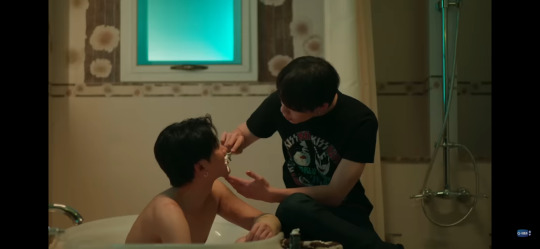
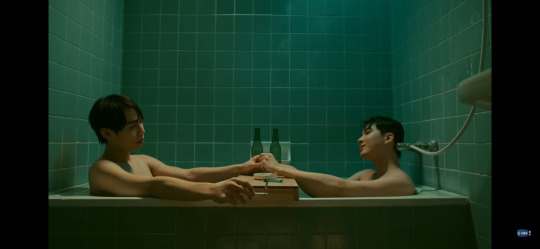
but I’m also terrified of.
#gmmtv series#gmmtv actors#gmmtv#thai bl#bl drama#firstkhao#only friends#only friends the series#only friends sand#only friends ray#only friends mew#only friends top#only friends nick#only friends boston#only friends yo#queer series#raysand#sandray#give me the strength#to not cry every two seconds
25 notes
·
View notes
Text


Yesterday, I listed some queer books coming out this month, and today I'll go over the queer series that are being continued in March. This is a non-exhaustive and informative list, checking out the trigger warnings and possible problematic content/author will be up to you.
Cirque du Slay, Book 2 of Hayden & Friends; Rob Osler, March 5th
Remnants of Filth: Yuwu, Vol. 3; Rou Bao Bu Chi Rou (translation), March 5th
Saint, Sorrow, Sinner, Book 3 of The Gideon Testaments; Freydís Moon, March 5th
Mona of the Manor, Book 10 of Tales of the City; Armistead Maupin, March 7th
Blessed Water, Book 2 of A Sister Holiday Mystery; Margot Douaihy, March 12th
Infinity Kings, Book 3 of Infinity Cycles; Adam Silvera, March 14th
Heir to Dreams and Darkness, Book 3 of Court of Broken Bonds; Ben Alderson, March 15th
The Weavers of Alamaxa, Book 2 of the Alamaxa Duology; Hadeer Elsbai, March 19th
Guardian: Zhen Hun, Vol. 2; priest, March 26th
In Walked Trouble, Book 2 of Single in Seattle; Dana Hawkins, March 26th
The Feast Makers, Book 3 of Scapegracers; H.A. Clarke, March 26th
The Phantom Flame, Book 2 of Brimstone and Fire; T.M. Ledvina, March 26th
#books#book releases#march 2024 releases#book recs#book recommendation#book list#queer books#queer series#adam silvera#armistead maupin#tales of the city#out of the forest out of the brain#out of the queue i come
7 notes
·
View notes
Text

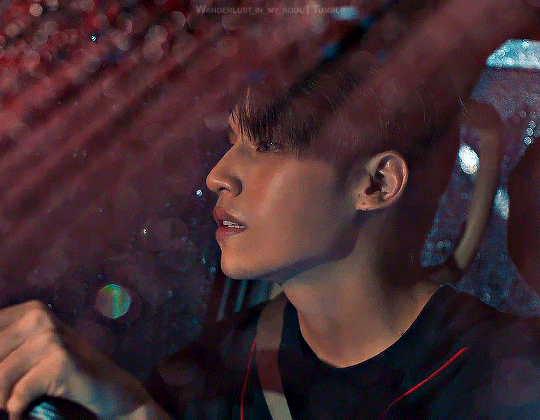



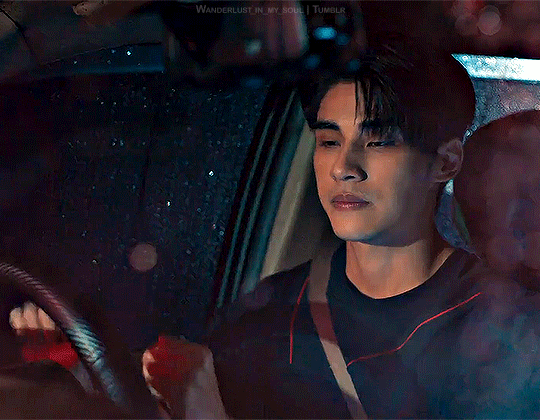
I've changed my mind. You can take me wherever you want. Ah? Then where do you want to go? As I said, anywhere is fine. In that case, I guess I can turn right and stop at a restaurant.
#my stand in#my stand-in#Joe x Ming#JoeMing#up poompat#poom phuripan#PoomUp#bl drama#bl series#thai bl#thai drama#thai series#Poom is back at my screen 🥰#queer series#queer drama#lgbtq+
114 notes
·
View notes
Text
Ray broke my heart throughout the episode multiple times. The suicide attempt, the kiss, his existence. But the moment he is asking Sand to punish him. He continuously asks him to insult him, because that what he thinks he deserves. Because for him there is something wrong with him, him being alive his feeling for Mew, him being rejected, him kissing Mew, him ditching Sand, his mom not loving him... everything it's because of him. That's what he sees in himself. That's so fucking heartbreaking. I wish someone took him to see a shrink.
#only friends the series#only friends#ofts#ray our poor boy#sad wet cat#thailand drama#thai bl#queer series#bl drama#sand x ray
35 notes
·
View notes
Text
some people have never watched a really good queer series like queer as folk and it's noticeable
13 notes
·
View notes
Text
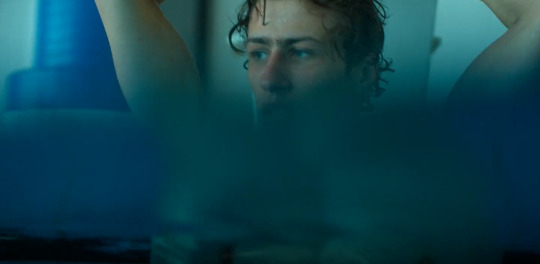



"Blu"
Prisma, S1E05
#prisma#prisma la serie#mattia carrano#ludovico bessegato#blu#1x5#screencaps#screenshots#queer series#italian series#lorenzo zurzolo
37 notes
·
View notes
Text
I was like wow how are all of jeff satur’s songs so WangXian coded but then remembered he is also huge mdzs fanboy
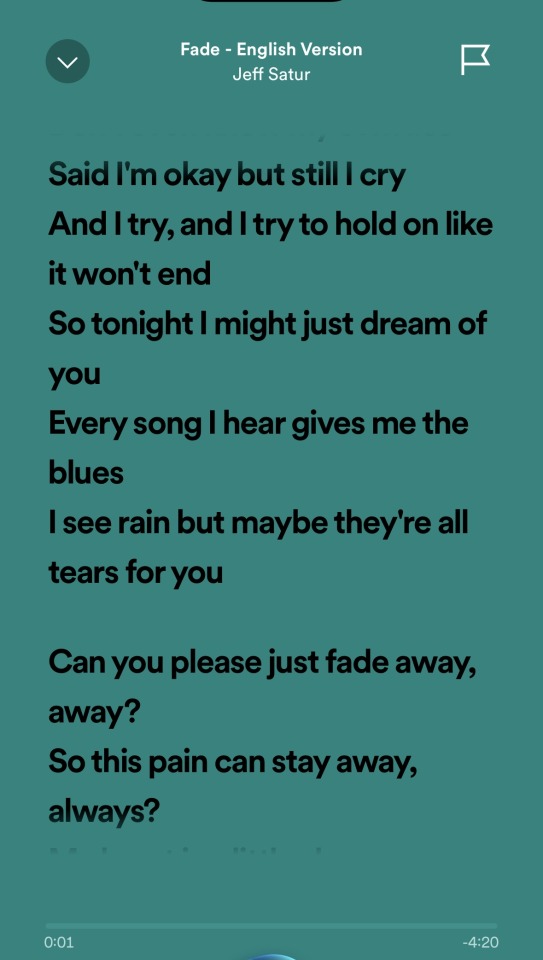

#mo dao zu shi#the untamed#Autistic gay x bisexual with adhd#lan wangji#wei wuxian#wei ying#lan zhan#grandmaster of demonic cultivation#mdzs#mo xiang tong xiu#mxtx#danmei#boys love#queer series#wangxian#bl anime#jeff satur#thai singer#why dont you stay
18 notes
·
View notes